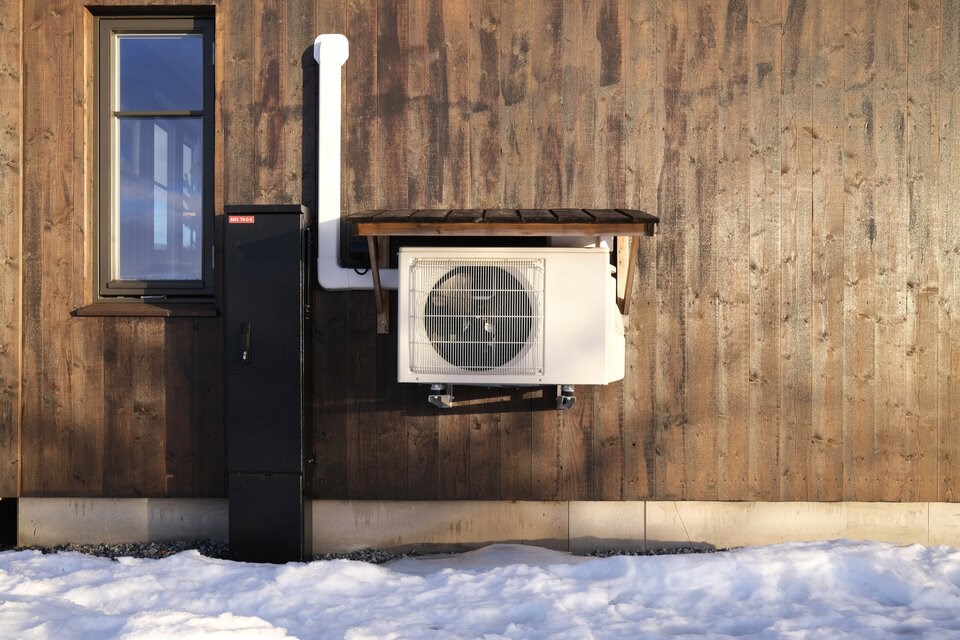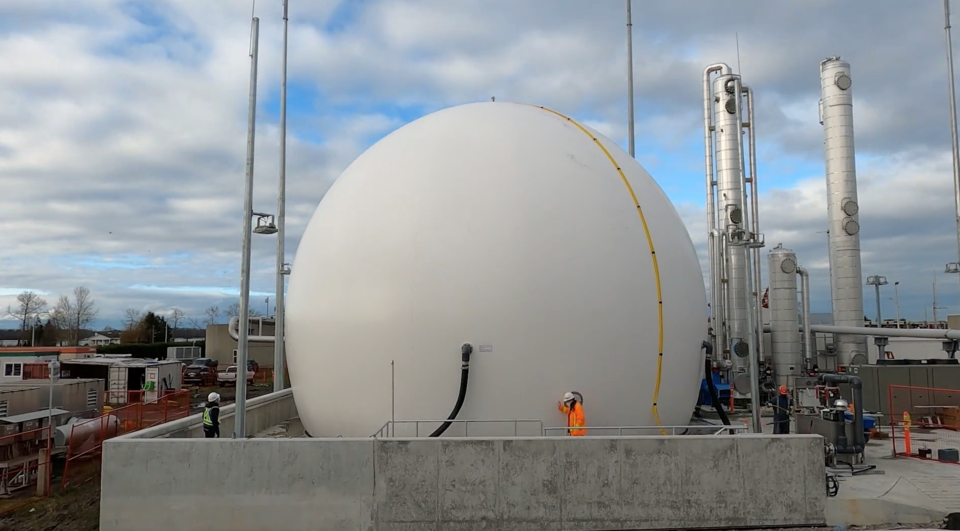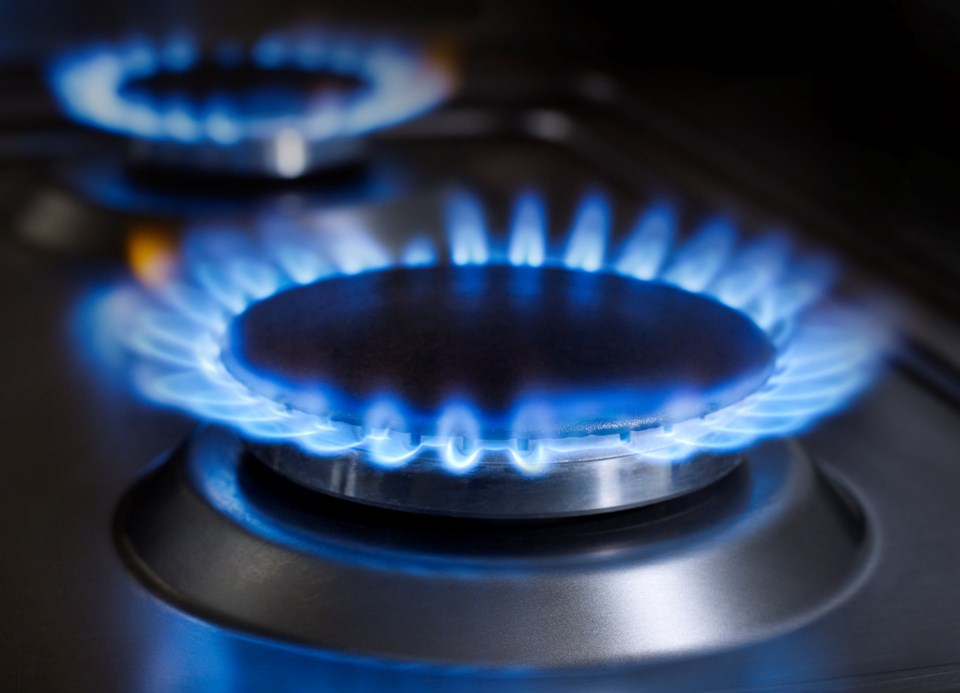B.C.'s climate advisory council has slammed the provincial government's plan to lower emissions from gas utilities, instead calling on it to join nearly 100 U.S. jurisdictions banning all gas hookups in new buildings.
The B.C. government's current plan to reduce carbon pollution from buildings calls for an emissions cap on gas utilities that would drop greenhouse gases 47 per cent below 2007 levels by 2030. But in a letter, dated Sept. 15 and recently made public, the BC Climate Solutions Council says the government’s plan to reduce emissions from the building sector has veered off course.
The council said the current framework to cut emissions from gas utilities feeding new buildings relies too much on renewable natural gas (RNG), instead of reserving it for hard-to-decarbonize industries.
That will lead to a regulatory system that “delays emission reductions, adds complexity, and increases uncertainty for the natural gas sector, households, and businesses,” wrote the council, which includes climate researchers, environmental advocates, and representatives from energy companies like Shell Canada.
“It significantly reduces the likelihood that B.C. will meet its 2030 climate targets,” they write.
The council, which is legislatively mandated to produce reports to government on progress toward its climate targets, has yet to receive a response from government outside of an acknowledgement the letter was received, according to several members.
Glacier Media requested an interview with Environment Minister George Heyman and Energy Minister Josie Osborne. Neither were made available for comment Friday.
In an unattributed statement, a spokesperson from the Ministry of Energy, Mines and Low Carbon Innovation said the B.C. Utilities Commission will have a mandate to review gas utilities’ “plans, investments and expenditures” so they adhere to the emissions cap while being cost effective to people and businesses.
The statement said about half of the energy used to heat B.C.'s homes and buildings comes from fossil fuels. That's why efficiency standards and switching from gas to electric heating in existing buildings is “so critical to meeting our climate goals.”
The ministry's statement said it “continuously” assesses feedback from a “wide range of partners and stakeholders.” It did not address the call from the BC Climate Solutions Council to ban new gas hookups.
Stranded assets could cost public, says council member
The council took aim at the current Greenhouse Gas Reduction Standard, which allows government to offer utilities a path to reduce greenhouse gas emissions and recover their costs through rate changes.
Under the plan, utilities would determine how best to meet the target. That could mean investing in energy efficiency, acquiring more renewable gases or backing heat pump retrofits, said an unattributed statement from the province.
For utilities like FortisBC, a big part of that plan is to switch to renewable natural gas, a methane fuel that at the molecular level is indistinguishable from fossil gas. The difference comes in how it is captured. By pulling the gas from wastewater treatment plants, landfills, wood waste or manure from farm animals, advocates say the fuel doesn’t add any carbon pollution to the atmosphere that wouldn’t already be released.
But critics of RNG say an emphasis on switching to renewable natural gas will force new buildings into installing gas heating infrastructure, a costly proposition that will eventually lead to stranded assets.
Nancy Olewiler, a professor at Simon Fraser University's School of Public Policy and one of the council's two co-chairs, said expanding B.C.'s gas network would be both "wasteful" and "inefficient" as governments in Canada and around the world are working toward phasing out fossil fuels.

“If we expand our gas network, something else has to give — it'll either be the targets, or it'll be the burden on other sectors of society,” said Olewiler, who in 2021 provided the province with an independent assessment of its oil and gas royalty program.
Tom Green, a council member and senior climate policy advisor at the David Suzuki Foundation, said hooking up new buildings to the gas network would force the purchase of furnaces that last 20 or more years.
“Basically, in a few years, we’ll ask them to switch to heat pumps. Now, we’ve just done them a big disservice,” Green said.
Or as Olewiler put it, “Why invest in technology that's going to go away?”
Glacier reached out to members of the climate council who work with Shell Canada and Teck Resources, but did not receive a response.
B.C. and Canada falling behind on climate promises
The release of the letter comes the same week a coalition of environmental groups released their second annual report card into B.C.’s progress confronting climate change. The report found B.C. is “not on track” to meet its own targets. Of 10 targets assessed in the report, B.C. failed three and made minor progress on seven, including its move to accelerate the transition to zero-emission buildings.
At the national level, an audit from Canada’s environment commissioner this week found the Liberal emissions reduction plan was better than previous policies but would still come up short by 2030.
Canada's 2030 target would require emissions levels that are 40 to 45 per cent lower than they were in 2005. That would require current emissions to be reduced by about one-third before the end of the decade.
The measures in the plan will only reduce current levels by about one-quarter by then, Jerry DeMarco said — and that's using government modelling that lacks transparency and is based on what he called "overly optimistic assumptions."
Overall, emissions are about 14 per cent higher in 2021 than they were in 1990, but emissions from oil and gas production are up 89 per cent in that time frame.
'Deep' emissions cut requires most affordable, most efficient solution
In B.C., Green says the province needs a more coherent strategy. Right now, he said the Greenhouse Gas Reduction Standard has created a system where two titles — FortisBC and BC Hydro — are competing for customers.
The government’s own goals aim to reduce carbon pollution and minimize costs to consumers, while getting them through cold winters and increasingly hot summers.
According to the council, the logical path is to save RNG for where it’s needed most, in shipping or industry, and not in buildings where heat pumps are a proven technology.
Kathryn Harrison, a council member and professor of political science at the University of British Columbia, said the council’s recommendations were based both on what would be good for the climate and people’s wallets.
Harrison described the 45 per cent emissions drop expected of B.C.’s gas utilities as “a deep cut” that would require big changes to the status quo should the province hope to hit its 2030 targets.
“Our job as a council is to give our best advice on how B.C. can meet its emissions targets. We wouldn’t lightly suggest the province change its approach unless we were very concerned,” she said.

According to Harrison, the places B.C. can make the biggest difference is where proven technologies combine to offer the most affordable and efficient options. Heat pumps provide that, she said.
About “90 per cent of British Columbians live in climate zones where electrification of new homes would result in cost savings,” notes the council, referring to current modelling from B.C.’s Zero Carbon Step Code.
Harrison also cited research published in September 2023 from the Canadian Climate Institute showing heat pumps outperformed gas heating and air conditioning across Montreal, Halifax, Vancouver and Toronto. Similar results have been found in a variety of climates across multiple countries.
In the colder climates of B.C., where heat pumps might not be as efficient, the council recommended the government introduce measures to protect affordability, according to the letter.
“Nobody wants to destroy the economy, but the economy is changing. We don't have blacksmiths and buggy whip producers anymore because horses are no longer our mode of transportation. And we're not going to have fossil fuel-driven vehicles and heating systems in the future. So how do we transition?” said Olewiler.
“How do we accommodate this in a way that’s as smooth as possible? That’s our challenge.”
Letter comes amid claims of industry misinformation
The letter from the BC Climate Solutions Council is the latest challenge to FortisBC’s proposed path to decarbonizing the province. A Glacier Media investigation published in August 2023 found a report weighing the role gas could play in B.C.’s clean energy transition was edited to remove sections stating electrification and heat pumps are a more efficient path to decarbonize the province.
The report, co-commissioned by the province and FortisBC, sparked claims of misinformation as municipalities across the province weigh policies that would accelerate a shift away from natural gas.
“Shutting out an existing safe, reliable and affordable energy delivery system, is not the answer,” said Diana Sorace, FortisBC's senior advisor for corporate communications, in an email at the time.
When it comes to banning gas hookups in new buildings, Harrison said FortisBC has long been “fighting proposals for this” in communities across B.C.
“They’ve been arguing it limits consumer choice. But in fact it’s giving consumers the choice of burning fossil fuels, and imposing the cost of doing that on others,” said Harrison.
“This poses big risks. Every time that happens, we are locking in continued reliance on fossil fuels.”




